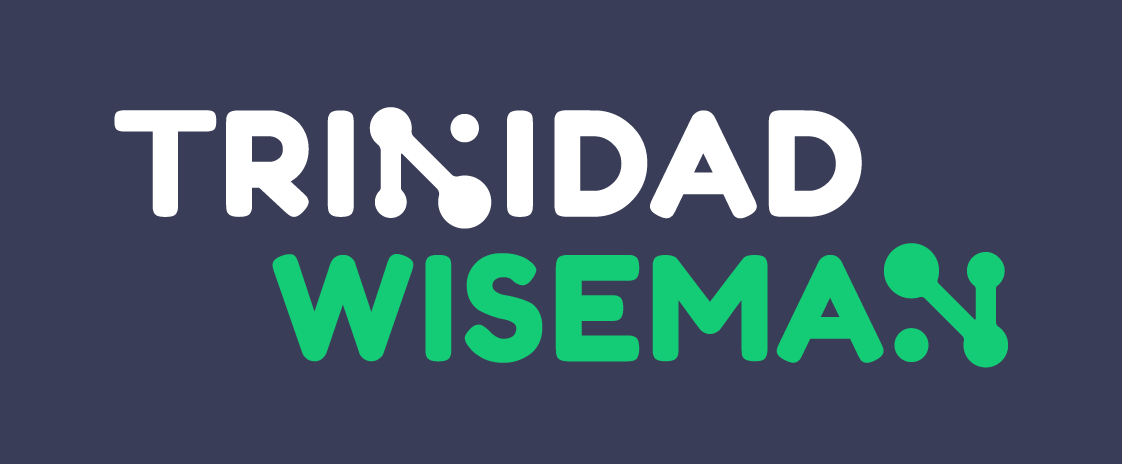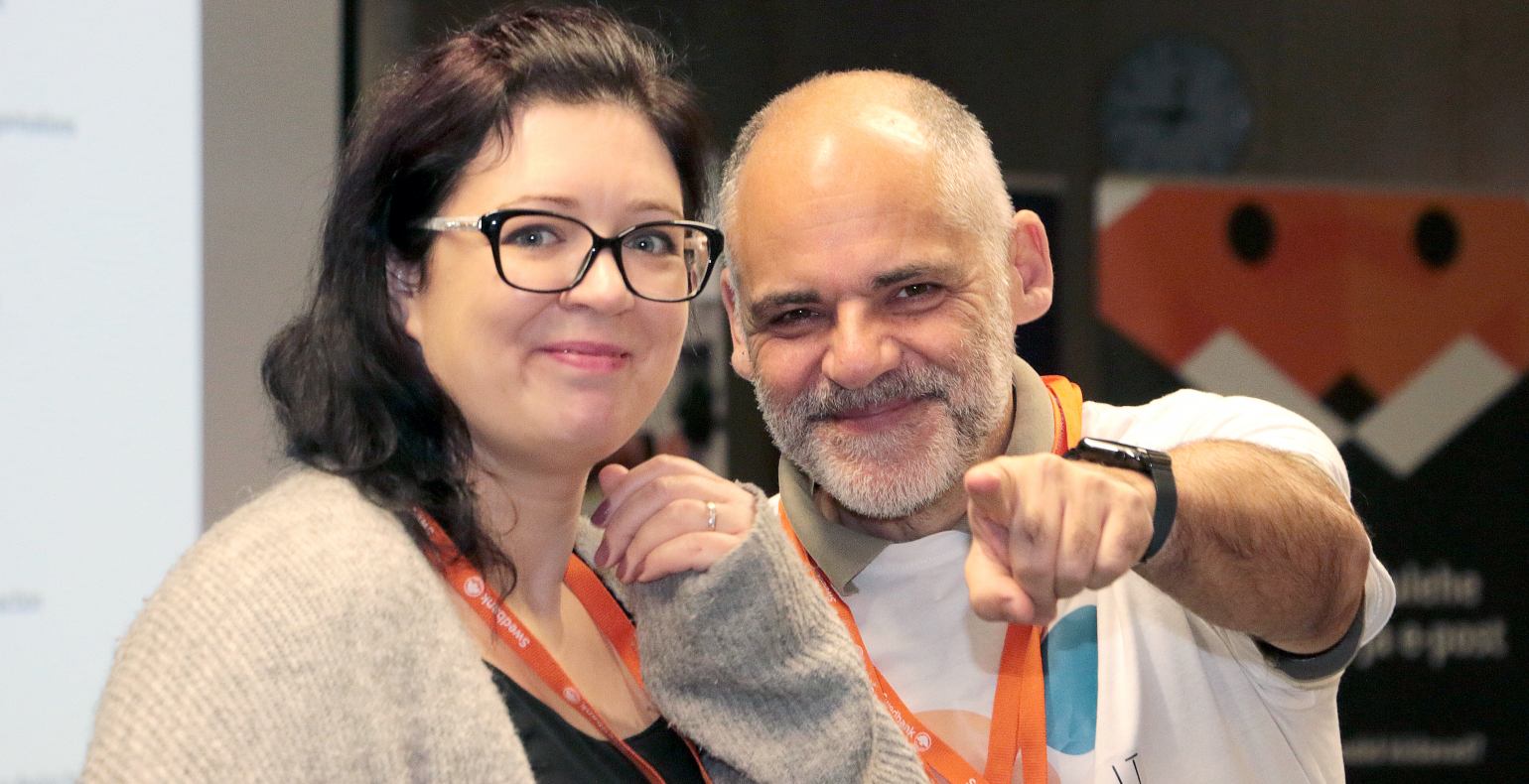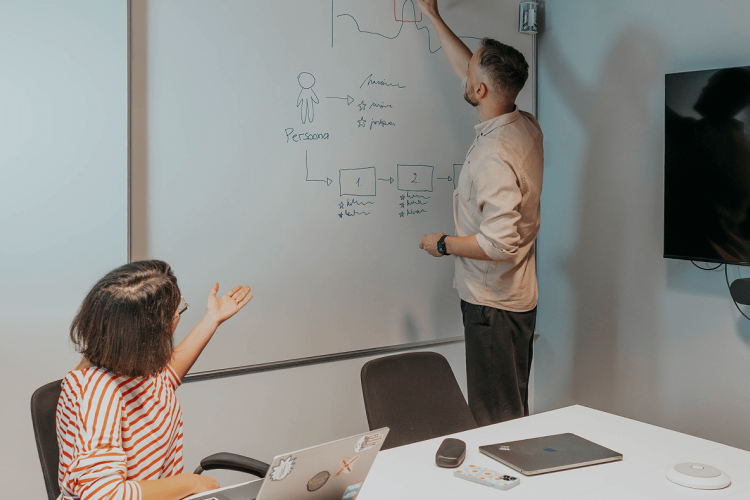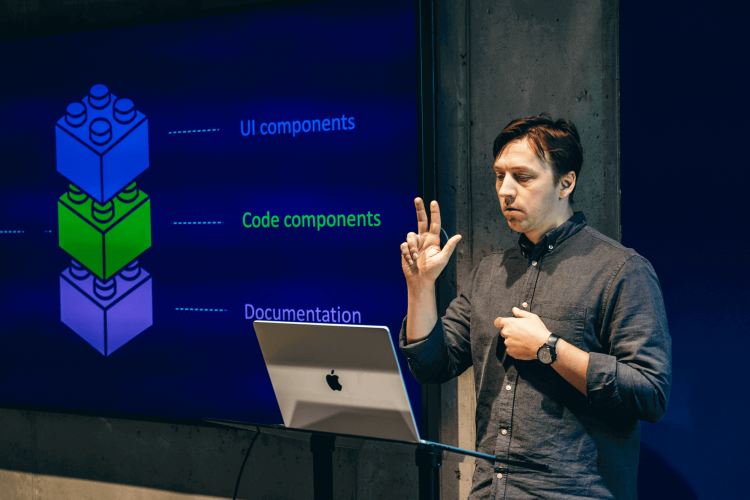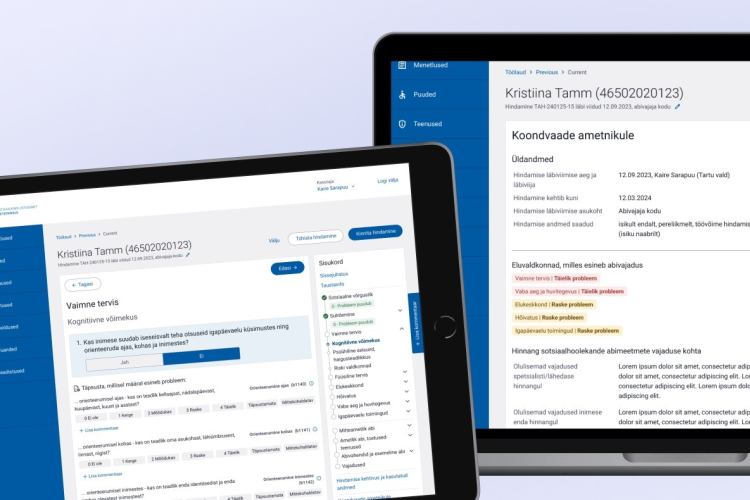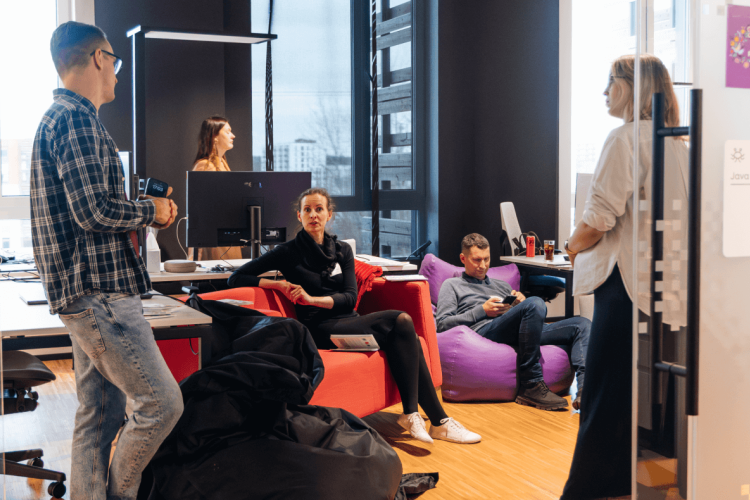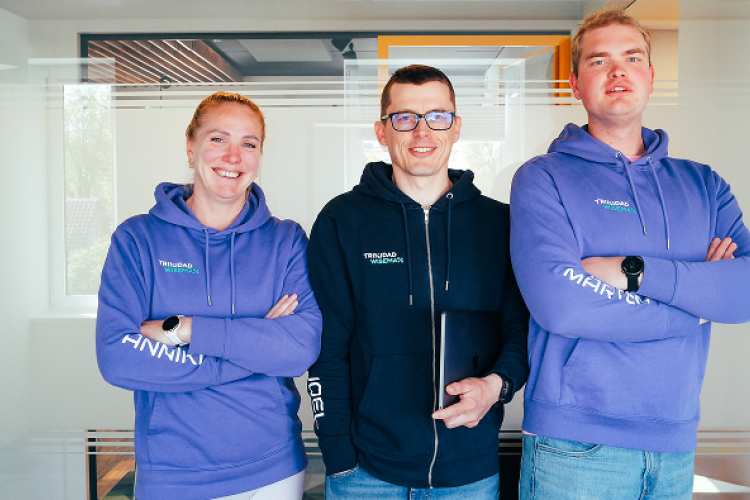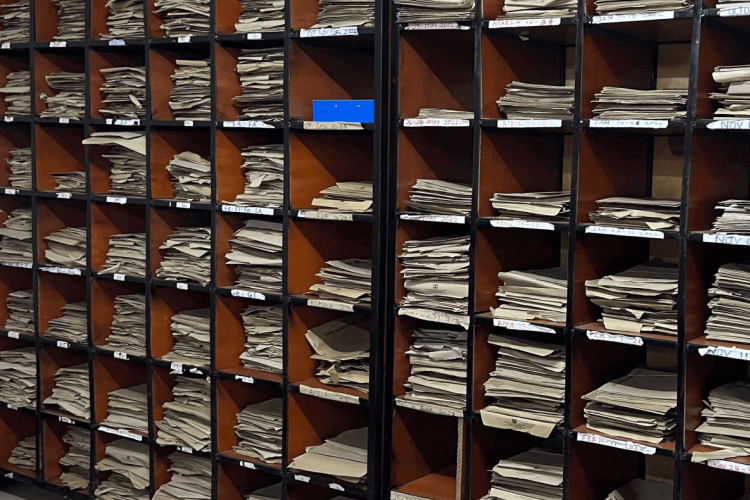World Usability Day Conference: retrospect and future
World Usability Day Tallinn is the #1 conference for User Experience professionals in Estonia and the largest UX-web- and interaction design event in Baltics. WUD Tallinn is accompanied by hands-on workshops and tutorials on the days before and after the main event.
For the last 3 years, the number of participants has grown to almost 500 and consists of UX designers, UI designers, UX professionals, front-end developers, business analysts, marketers etc.
WUD 2018
This year we were focusing on AI, Service Design and new tools for improving one’s day-to-day tasks. We had 12 top UX speakers such as Joe Macleod (Founder at andEnd), Lauren Kelly (Founder at Behaviour Studio), Emily Hinks (Mischief Makers) and many more.
The event was organized by Trinidad Wiseman, EstCHI, Tallinn University
The most popular talks
According to the feedback, the best talks were:
1. Data driven UX in the dark (Tomasz Pieta. Booking.com)
Data driven alone, is not an approach that blindly leads to success! A/B testing will not tell you why your customers have a different behavior in every country or product they purchase. How many customer journeys do you need to have when offering a borderless product? Winning the trust of your customers is the key.
2. The power of Creative Confidence (Emily Hinks, Mischief Makers)
Creativity is one of the most in-demand skills of tomorrow. It's no longer something reserved for the artistic elite, from painters to poets and writers - but rather a gift that everyone can develop. This talk explored how to cultivate creativity, how to recognise it and strengthen it. We explored how nurturing creativity can foster innovation, empower individuals and be used as a superpower to jet fuel change.
3.- 4. Ends. Why they are vital. And what you can do about it. (Joe Macleod. andEnd)
We design rich, emotional and meaningful experiences to onboard the consumer through advertising and marketing. In contrast, the off-boarding of consumer experience is barren of emotion and meaning.
Improving the design of product endings promises enormous opportunities, with more collaborative off-boarding experiences businesses, gain richer communication with their customers, improve the accuracy of deleting, reclaiming or removing materials, improve the brand perception through loyalty and increase re-engagement. In a new streamlined world, with consumers moving between multiple relationships, endings will be a competitive differentiator. The products we create in the future need to reflect this.
3. - 4. The science of design (Lauren Kelly. Behaviour Studio)
As humans, we are driven by our brains. Unfortunately, brains aren’t that smart. They are lazy. Influenced by other people. And they make bad decisions all the time. How then as designers can we design products and experiences that work? We delved into the behavioural sciences and why they are a designer's new superpower.
WORKSHOPS
Helen Job
Workshop: Future Forecasting for Brands
Participants gained strategic insights into future consumer behaviours and what they mean for business and learned the methods to understand what the future or futures may look like, and how to explore the “how” and “why” culture is changing across the world.
The workshops helped to understand “how” by examining changing societies and emergent cultural shifts you can refresh thinking about audiences and categories and ultimately open up new spaces of opportunity for your brand or organisation to grow.
Joe Macleod
Workshop: Introducing Ends - rebalancing the bias in the consumer lifecycle
The course introduced attendees to the theme of Ends in the consumer lifecycle from a background of consumer and social history. It revealed why consumer endings have been overlooked in the recent consumer society. Attendees discussed and investigated approaches to the issue of ends, developed and then shared their ideas between the wider group.

Claire-Lise Bengué
What’s in it for me, Adobe XD
This workshop was a very practical one about ADOBE XD and about its many new features that help to rapidly design, prototype, and share interactive experiences at the speed of thought. For newbies, this hands-on lab allowed to immerse in a new tool and learn powerful tips and tricks to remove friction from your digital design process.
Claire-Lise Bengué provided unique insights into the roadmap and the user-centric design process at Adobe and explained how the XD team manages to deliver quality releases across five platforms on a monthly release cadence.
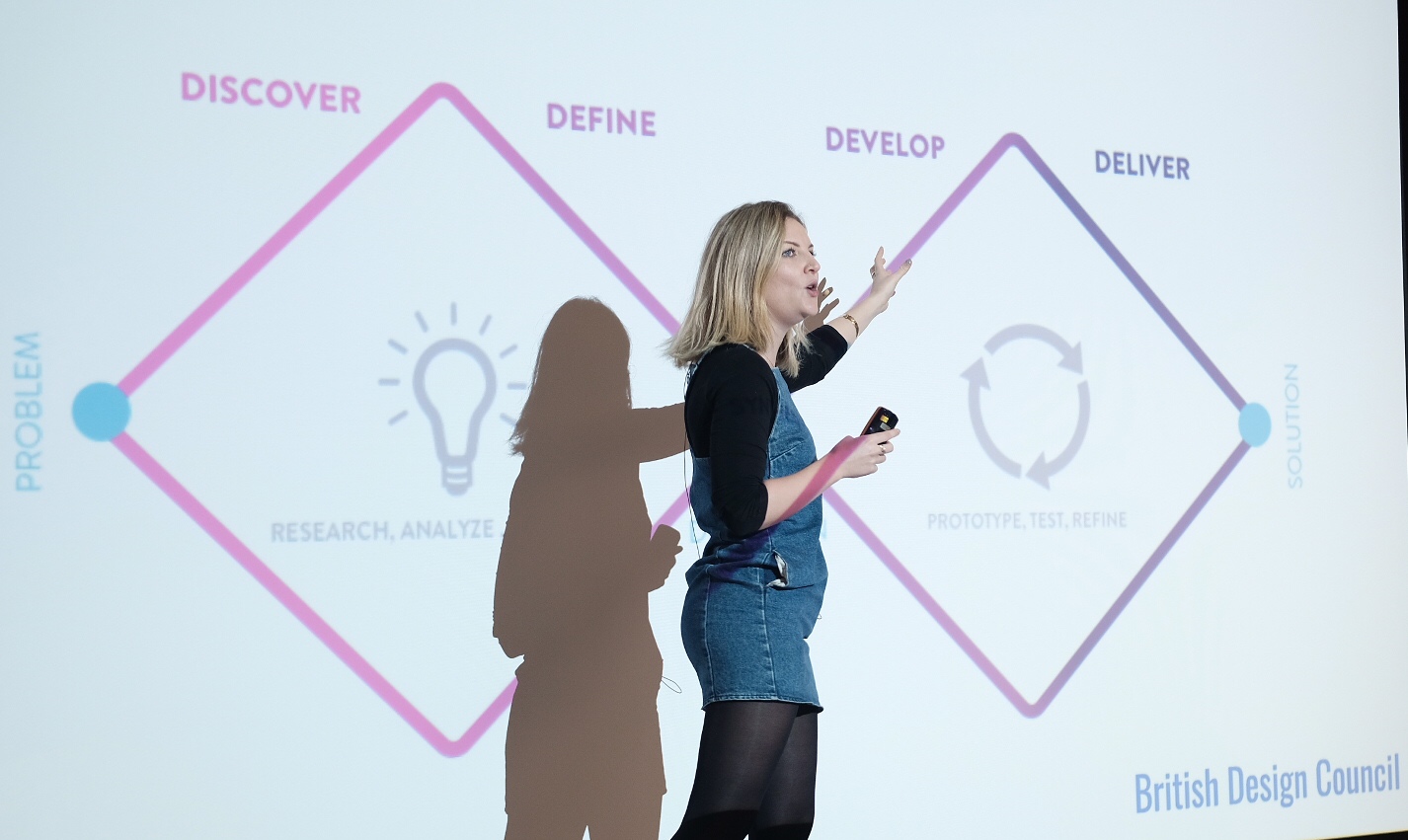
Emily Hinks
Collaborative Creativity
This workshop was at its heart an idea generation training. We looked at how to kick off or spark creativity, then use tools and techniques to turn that inspiration into tangible, developed ideas. Attendees ran through the creative process, exploring the power of collaborative creativity; how when and where to bring in every voice in the room in an effective, efficient and engaging way.
Jon Barnes
How to design resilient and honest organisations
Despite the discipline of design gaining more and more deserved ubiquity, it's not always thought of as something that we can apply to how human beings organise themselves. Indeed the work a designer does lives or dies by the design of the organism they are in. Which makes organisational design key to the success of any project. Organisational Design is something more people need to understand in order to do effective work, but also in order to build a more participative and ethical future for organisations tiny and huge.
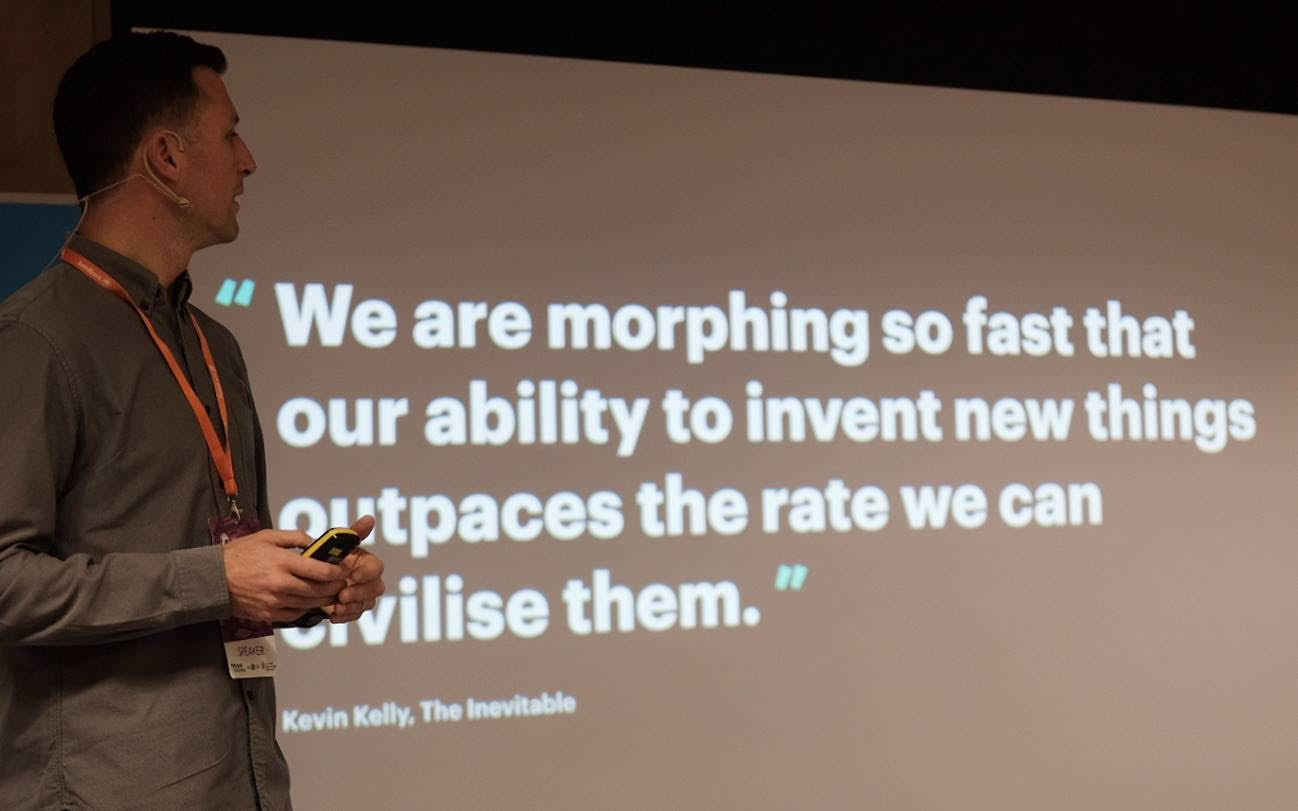
John Moriarty
Designing human-centric artificial intelligence
This workshop provided concepts, collaborative techniques and practical activities to make designing with AI more approachable.
Lauren Kelly
Behavioural Design: Understand motivation to optimise user experience.
As Human Centered Design advances, a new sector called Behavioural Design is emerging. Combining people science from academia with the practical application of design. Highlighting the question; how can insights from psychology improve Design? This workshop showed us how to put behavioural insights at the core of your design process. Focusing on one of the three main areas that underpin behaviour - people’s motivation.
After-party
The conference afterparty took place in a gourmet-beer-bar called Pudel.
World Usability Day
World Usability Day is the largest gathering of industry professionals, world-class academics, government leaders, and students facilitating the progression of usability, user experience, and user-centered design. Each year, the World Usability Day community holds over 150 events in more than 40 countries.
World Usability Day was founded to explore ways to ensure that the services and products important to life are easier to access and simpler to use.
SAVE THE DATE: 22.11.2019
World Usability Day Conference 2019
Next year's World Usability Day conference will be 12th in a row and take place on 22th of November in Tallinn Creative Hub.
If you have proposals about topics, presenters or are interested in co-organizing or presenting your company to the local UX community, please contact us: wud@twn.ee
Organizers of 2018 event:
Sponsors of 2018 event:
